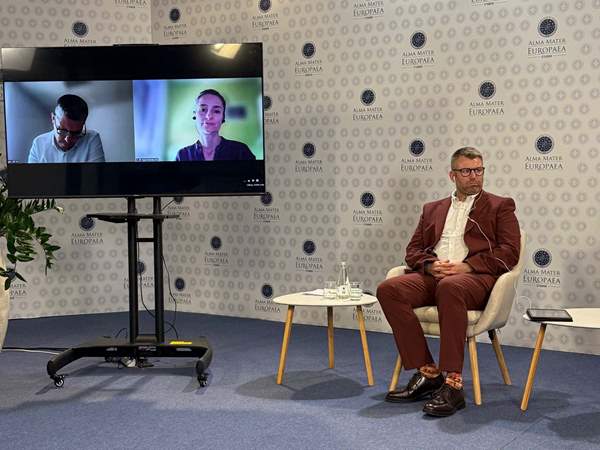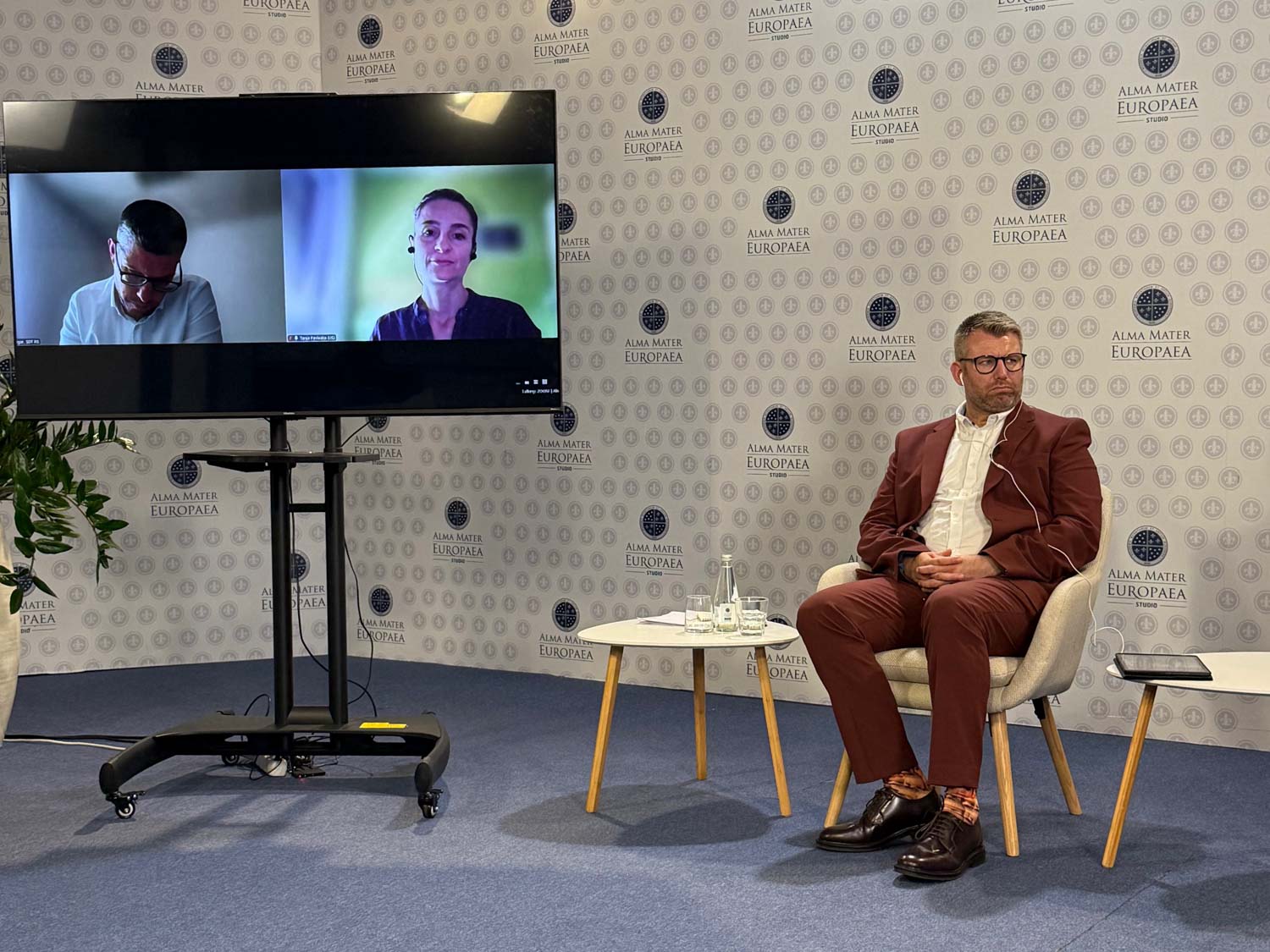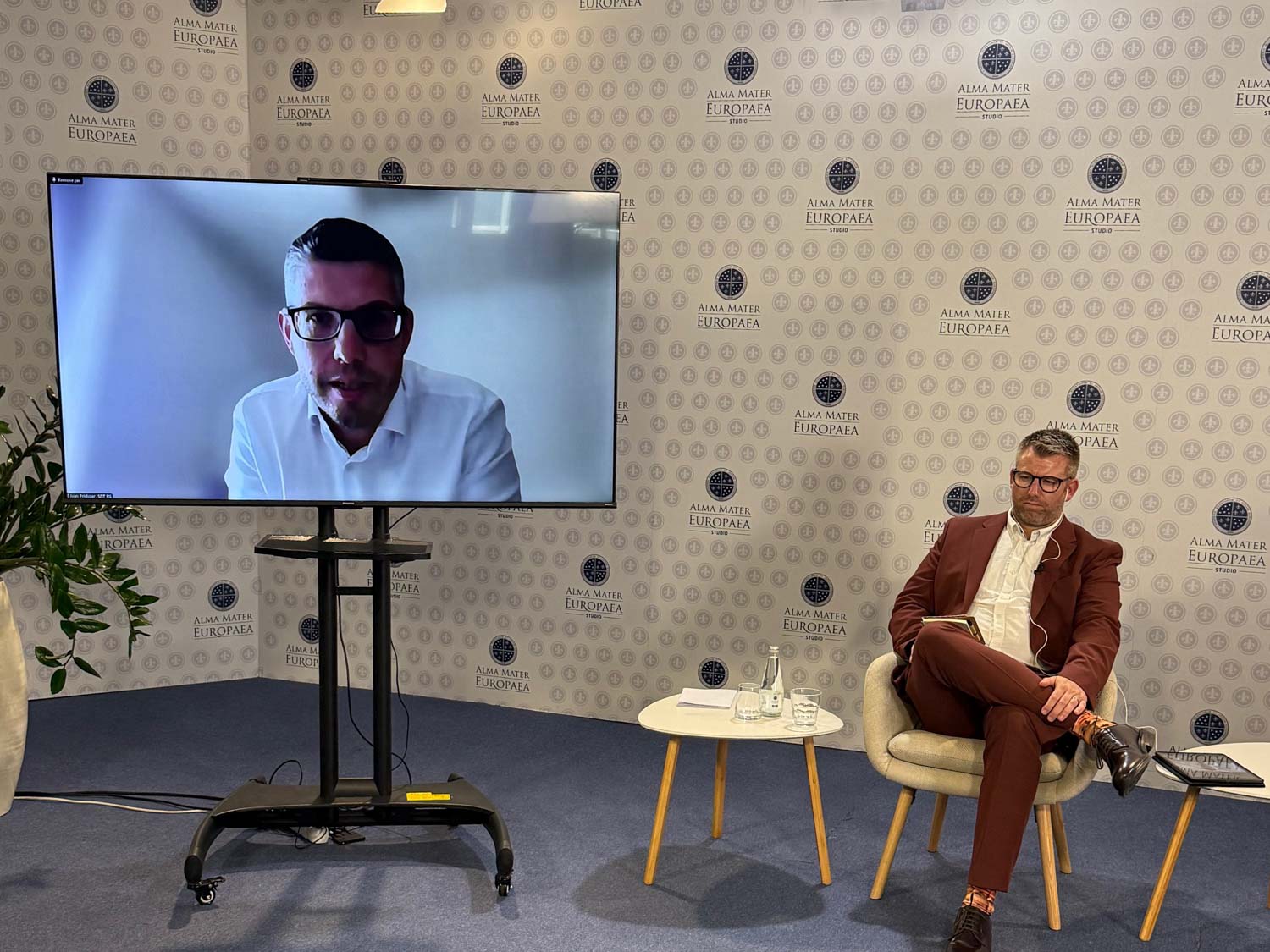
Attack or Defense? How is Artificial Intelligence Used?

“We see that attacks leveraging artificial intelligence are evolving and learning from their mistakes. It is a battle of machine versus machine. AI is used offensively and defensively. Human oversight is necessary to maintain balance,” emphasized Daniel Garnham, visiting professor from the UK and cybersecurity expert, during a recent roundtable at Alma Mater Europaea University, organized by the Department of Web and Information Technologies.
The “ In the Darkness of the Internet—Who Protects Us? “roundtable featured Dr. Tanja Pavleska from the Jožef Stefan Institute and Mag. Ivan Pridigar from the Specialized State Prosecutor’s Office of the Republic of Slovenia.
“The event aimed to discuss contemporary challenges in digital security, the role of artificial intelligence (AI) in cyberspace, and how to protect individuals and society from increasingly sophisticated digital threats,” explained Professor Dr. Matej Mertik, head of the department.
Dr. Tanja Pavleska, who researches artificial intelligence at the Jožef Stefan Institute, stressed: “Autonomous AI systems already exist, but without human oversight, we cannot speak of accountability. Transparency is crucial for trust, especially in crises where decisions must be made quickly. AI must become a tool that assists humans, not replaces them.” Pavleska also presented innovative approaches to education:
“With generative AI, we can create simulations and gamified learning environments where students learn through scenarios and interactions. Alongside individual learning, community learning is developing, where AI connects students based on their progress and encourages collaboration.”
Ivan Pridigar from the Specialized State Prosecutor’s Office, who has recently been extensively involved in cybercrime cases, highlighted the judiciary’s challenges: “Perpetrators already use AI to cover their tracks. However, the justice system is slower due to legislation and its procedural nature. We need more experts, better education, and international cooperation to keep up with developments.” On the topic of the dark web, Pridigar explained:
“Data from the dark web remains a source of attacks. AI enables the generation of fake identities without data theft. This changes the nature of crime.” Pavleska added that the dark web is not only a tool for criminals: “By analyzing dark web data, AI can predict future attacks and vulnerabilities and help design security measures. Dark data is becoming important for researchers and security professionals.”

Regarding AI regulation, Pridigar warned: “In the USA, predictive policing systems are already in use, but such approaches in the EU clash with human rights protections. We are particularly cautious in Slovenia, so introducing such systems is currently unfeasible.”
The roundtable showed that the future of digital security is inseparably linked with AI development, education, and international collaboration. Alma Mater Europaea University demonstrates its commitment to creating a space for open dialogue, connecting experts, and seeking solutions to challenges posed by the digital age through events like this. A new series of lectures with specialists will continue in August.
